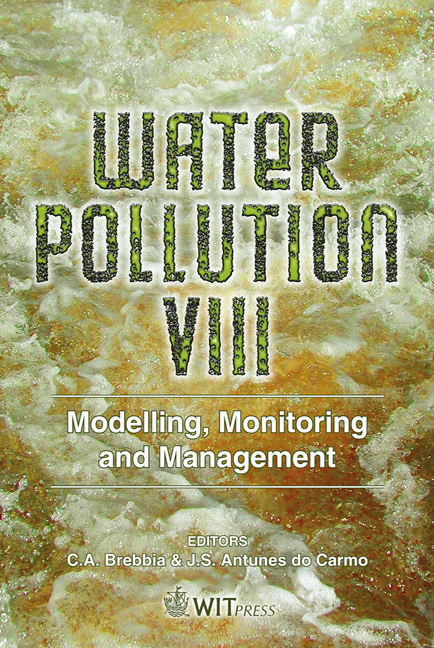Evaluation Of A Novel Membrane Bioreactor System For Water Reuse Applications In Urban Environments
Price
Free (open access)
Transaction
Volume
95
Pages
10
Published
2006
Size
381 kb
Paper DOI
10.2495/WP060471
Copyright
WIT Press
Author(s)
R. R. Sharp, G. Heslin & M. Dolphin
Abstract
A comprehensive pilot study was carried out to evaluate a small-foot print, high efficiency biological membrane wastewater treatment process to produce reuse quality water to address water shortages and continued development in a United States Federally designated sole source aquifer area. The treatment process included a high-rate primary settling unit with coagulant enhanced settling and phosphorous removal, followed by four-stage BNR membrane filtration. The goals of the study included: 1) determine if and under what operating conditions the MBR system could produce reuse quality water from a weak municipal wastewater; 2) determine the effects of coagulant addition on MBR performance and fouling; and 3) perform an economic analysis to determine if the process is competitive with conventional treatment methods. The study included testing process control strategies and assessing the addition of coagulation to enhancing settling and nutrient removal. Tests on the system were carried out to determine operational variables and requirements during high flow rates, ammonia challenges, cold and wet weather conditions, low BOD and nutrient loads, and biological upsets. Keywords: membrane bioreactor, water reuse, wet weather, operational variable, fouling, biological nutrient removal, urban wastewater flows.
Keywords
membrane bioreactor, water reuse, wet weather, operational variable, fouling, biological nutrient removal, urban wastewater flows.





